
Iranians are some of the most encouraging people when it comes to speaking their language (Farsi). They’ll not only cheer you on for attempting to say some Persian words, but they’ll also teach you to correct your Farsi pronunciation. So please do not feel shy when you speak Persian! You can use our list of 21 Farsi phrases as a starting point for interacting with Iranian and making new Persian friends.
Best Farsi Learning Resource!
1. Greetings and Essentials
Salâm / Dorood — Hello
Please start with a smile and one of these words. Salâm is probably the most routine way to say “hello,” in Farsi. But since it’s an Arabic-rooted word, some Iranians opt to use the authentically Farsi “dorud”. Choose whichever you like (or whichever is easier for you to remember).
Khasteh nabâshid (khas-teh na-baa-sheed)
There’s no English translation for this phrase because it’s a cultural phrase rooted in Iranian taarof. It literally means “don’t be tired” and usually is used as a way to recognize and appreciate a person’s hard work. Use it as a greeting alone or right after “hello/hi” as a super polite greeting. The standard answer for this phrase is, salâmat bâshid, “may you be healthy.”
Merci / Kheyli mamnoon / Sepâs — Thank you
Iranians have several ways to say “thank you,” and they’re often used together in combination. Take your pick from one of these. Similar to “hello” above, if you want to use the authentic Farsi word, go with sepâs.

Khâhesh mikonam — You’re welcome, or Please, I insist.
Actually, this phrase can be a simple answer to “thank you.” But when Iranians say “ghâbel nadâre”, implying that you don’t need to pay for something, you can use “khâhesh mikonam” to insist. Therefore, they’ll be astonished (and relieved) you recognized it as taarof and take your money.
Baleh / Na — Yes / No
Two of the most basic Persian words, you’ll be surprised how far they can get you.
Befarmâid (be-far-mâ-eed) — Here you go.
Another taarof-related phrase, this one can be used in many contexts, but it’ll be most useful to you when you want to hand someone money. Otherwise, maybe you hear it when someone offers you something or wants to direct you—as if to say, “go ahead.”

Bebakhshid (be-bakh-sheed) — Excuse Me
Appropriate when you want to get someone’s attention or you can use it if you accidentally bump into someone.
Khodâ hâfez — Goodbye
When parting ways, a simple khodâ hâfez (run together to sound like khodâfez) will suffice and the answer might be this same phrase or khodâ negahdâr, “may God protect you.”
Servees behdâshti kojâs? — Where is the bathroom?
Take advantage of bathrooms in any restaurants or attractions you visit in Iran and be prepared for the squat kind. If you don’t remember this phrase, also you can use the universally understood “WC.”

2. At a restaurant
Man giâhkhoram (man gee-âh-khor-am) — I’m a vegetarian.
Vegetarianism is very slowly (but surely) growing in Iran, but still, Iranian cuisine is highly meat-based. Actually, this phrase may come in handy in case anyone is in shock as to why you aren’t inhaling that plate of chelow kebab, the national dish.
Kheyli khosh mazas — It’s delicious.
Iranians are proud of their cuisine, and usually, dinner for a normal-sized group can yield enough to feed a small army. Also, you can compliment the chef for the delicious food you’ve just devoured, and give them an enormous sense of self-satisfaction at having fed you well.
Daste shomâ dard nakone — Thank you (for the meal)
Another phrase for “thank you,” actually this one is taarof-based and literally means “may your hand not hurt.” You can impress the locals and appear like one yourself when you thank someone for a meal.

Nooshe jân! — Bon appétit!
Though you’re more likely to hear this phrase, it’s a good one to know because it’s so common in Iran. It’s used by the cook both before a meal, like bon appétit, and after to express delight that you enjoyed the food.
Seer shodam — I’m full
Iranians are so kind. They will constantly try to feed you and won’t be content unless you’ve left Iran with a few extra kilos. Don’t be afraid to tell Iranians you are full—they’ll just pack you a to-go box for later.
Ye delester lotfan — One non-alcoholic beer, please.
There’s no beer or wine served in Iranian restaurants, so you’ll have to settle for soft drinks or delester, non-alcoholic beer. Try it in original or fruity flavors.
online Farsi courses on YouTube:
- Learn Farsi in 100 Days Course
- Read and Write Persian Language in 7 Days
- Learn to Speak Persian / Farsi Fast
- Farsi Conversation: Learn the Most Common Words and Phrases Farsi Speakers use Every Day
- Easy Persian Grammar: A Perfect Handbook of Contemporary Persian Grammar (Beginner to Intermediate)
- Top 1500 Persian Words: Essential Words for Communicating in Persian
- Top 100 Farsi Words: Most Common Farsi Words You Need to Know
- 3000 + Most Common Persian Phrases
- 200 Absolutely Essential Persian Verbs
3. Shopping

Een chande? — How much is it?
When you don’t know the price of something, you can use this phrase if you want to buy something in Iran.
Âkharesh chand meedeen? — How much will you give it to me?
There’s always a little wiggle room when it comes to the price, especially in the bazaars, and asking for a discount is so usual. This question cuts to the chase—in the end, you can ask, how much will you give it to me? At which point you can buy that or walk away.
4. Making friends
Chetori? — How are you?
Iranians first ask how someone is doing, even if they just spoke one minute ago. Get used to asking this question and answering it with “khubam”, which means I’m well or I’m okay.

Man ahle ___ hastam. — I’m from ___.
Iranians want to know where are the tourists from when they see foreign tourists. Learn how to say your country, and throw them off guard when you give a Farsi answer to their English question and they will love you for it.
Khosh bakhtam — Nice to meet you
Pretty self-explanatory.
Felan — Bye, for now / Talk soon
This informal word is usually used between friends and sometimes followed by khodâ hâfez (goodbye).
Special Offers
by: Learn Persian Online Team about (category: Blog)
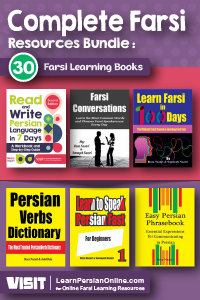

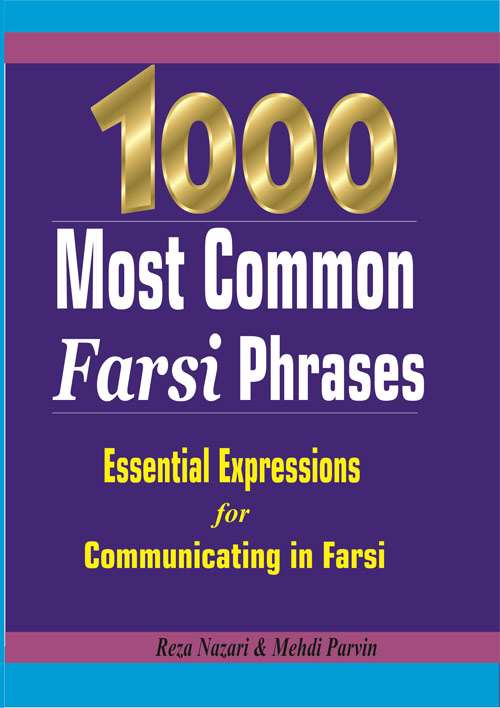

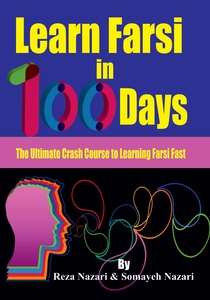






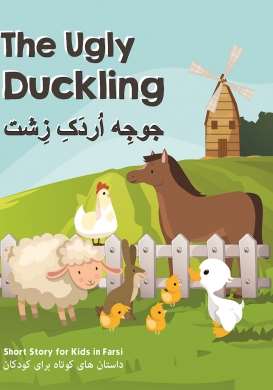
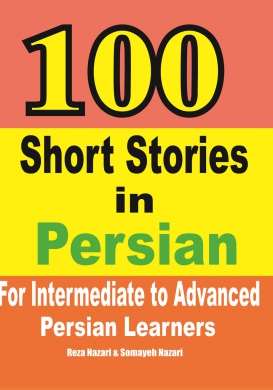




What people say about "21 Essential Farsi Phrases You’ll Need in Iran"?
No one replied yet.